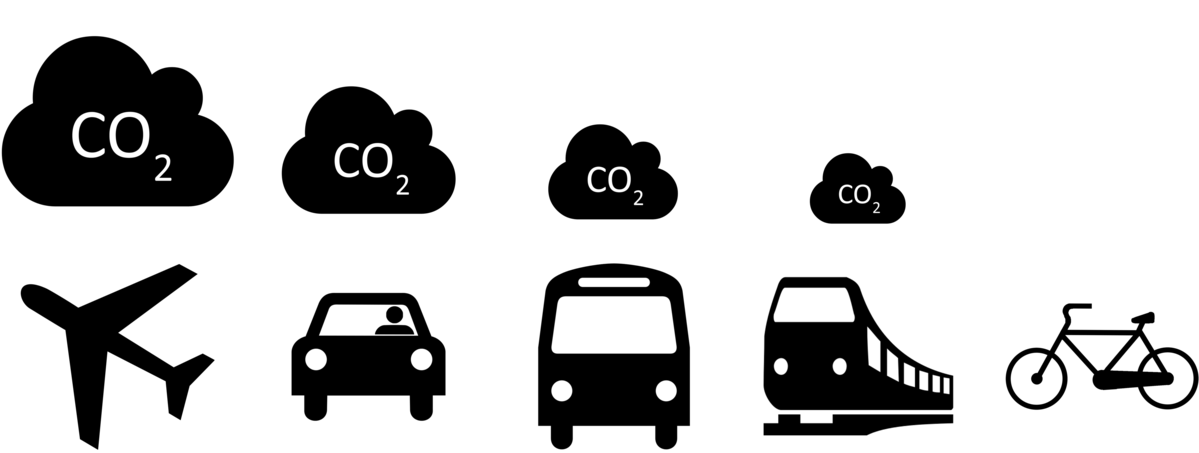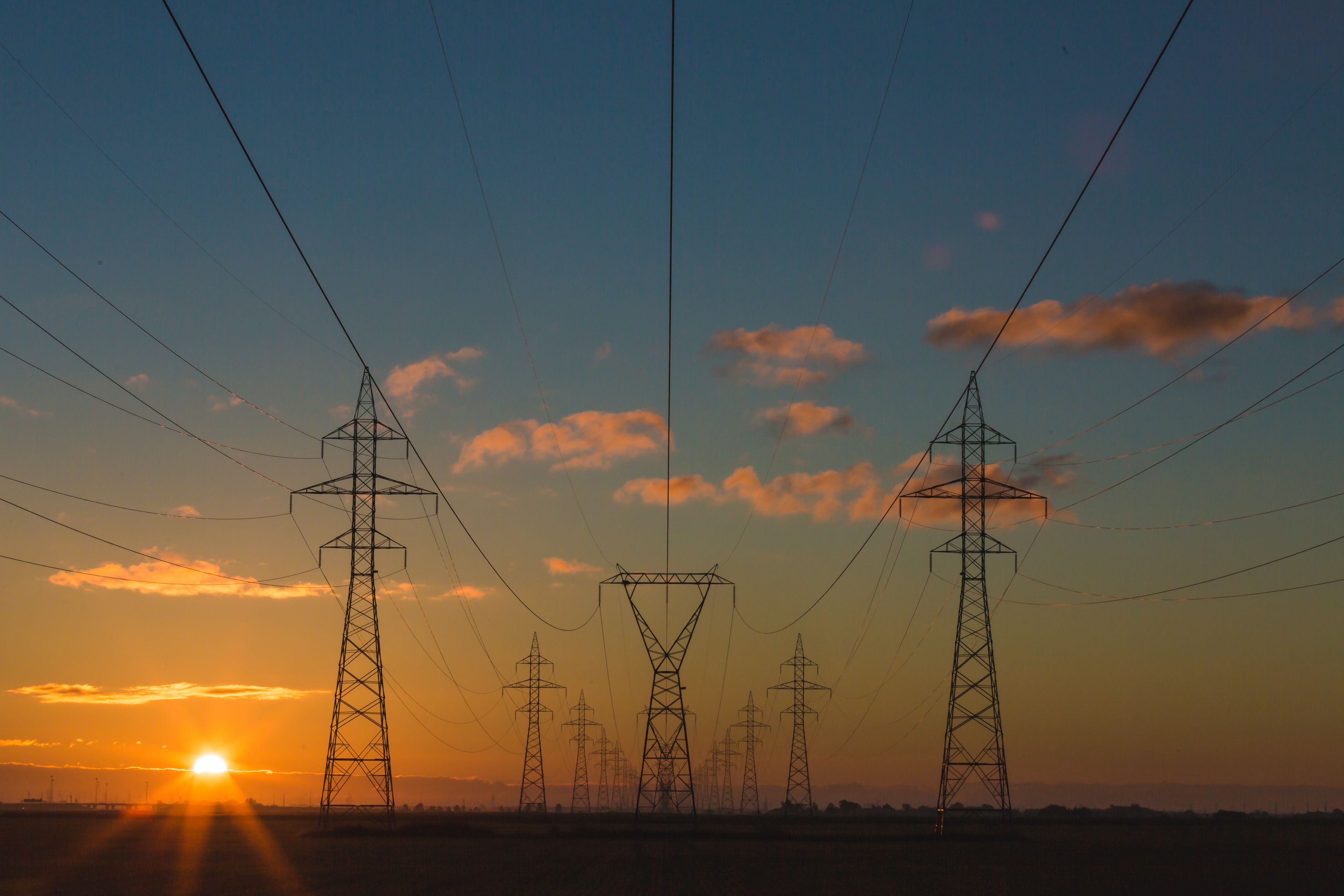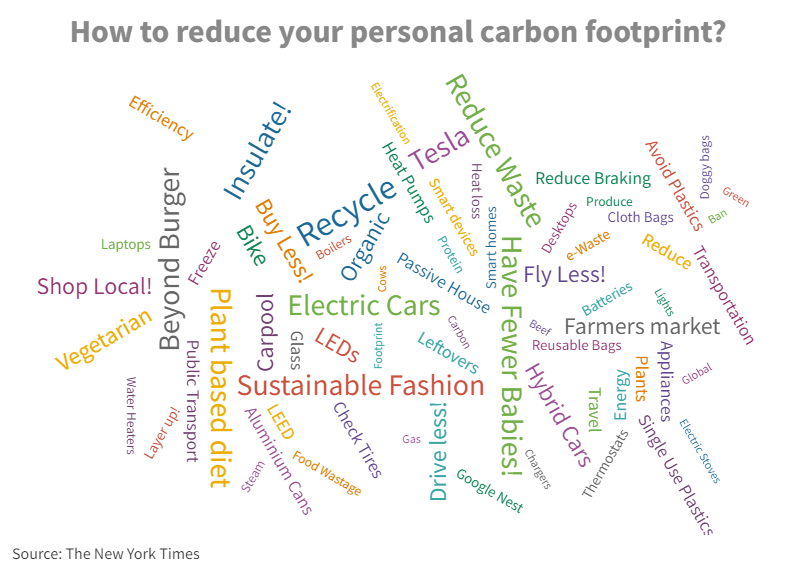Can we bike our way out of climate change?
Individual Actions V/s Systemic Policy Based Changes.

At this time, all of us are facing the consequences of climate change in one form or the other. Some of us are installing air conditioners at home to combat hotter summers and the others are stocking up on emergency supplies in anticipation of heavy flooding and harsh hurricanes.
Our daily news feed is filled with grand commitments made by leaders across the globe to combat climate change. However, most actions often feel outside our zone of control.
To escape this feeling of helplessness we are constantly looking for ways to reduce our individual carbon footprint by either buying sustainably sourced pants or shopping at a local farmer's market. Activities and products labeled as "green" or "sustainable" provide us instant gratification in our personal journey of "mitigating climate change" , in addition to being great content for our "woke" social media posts. But, how much does our individual carbon footprint reduction actually matter?


What is your Carbon Footprint?
We all leave a mark on our planet. Think of your carbon footprint as your personal impact towards climate change.
In technical terms, your carbon footprint is the amount of greenhouse gas you produce as a result of your daily activities and lifestyle which includes your mode of travel, the type of car you own, the goods you buy, your preferred thermostat temperature and the food you eat. The resulting emissions are measured in units of carbon dioxide.

What are the best possible ways of reducing our carbon footprint?
It is easy to drown in the sea of information available to us on the various ways to reduce our personal carbon footprint. We often tend to pick a few options from this thick cloud of information which suit our lifestyle.

But do our individual actions even matter?

Calculate Your Carbon Footprint!

There are numerous calculators available online which you could use to calculate your carbon footprint such as:
Insert your personal carbon footprint and see how much of an impact does it have on global carbon emissions.
The number above implies that your personal carbon footprint is negligible on a global scale.
Even if you are diligently recycling, shopping at a farmers market, biking to work, or buying sustainably sourced coffee, your contribution has almost no impact in reducing the global carbon emissions. What should you do then to have a greater impact or make a tangible difference in reducing global carbon emissions?
The teeny-tiny value of your personal footprint reinforces the belief that even if you are the perfect, zero-waste, low-carbon footprint human being, that doesn't change the world unless you do something bigger than yourself.
And in order to do something bigger closer to home, it is crucial to understand the largest contributors of emissions in the United States.
Transportation & Electricity are the highest contributors to carbon emissions in the United States.
Thus, moving beyond just individual actions to large policy based systemic changes in these sectors, by supporting policies mandating electric vehicles, advocating for natural gas pipelines in buildings and voting for clean electricity performance programs have a much larger impact on reducing carbon emissions.

Image Source: Unsplash
And it is important for all of us to focus on these large changes as it is clearly evident that even if we, as individuals, disappear tomorrow, we would still be facing exactly the same magnitude of climate crisis.
Does this mean our individual efforts to reduce our carbon footprint are a complete waste of time?

Absolutely Not!
Our individual actions do matter if we are using them as a form of communication, as an invitation for others to join us. Our actions can then cause a Ripple Effect leading to other actions, that can actually lead to a change.

For instance, starting a few years ago, an increasing number of people in Europe started making a conscious choice to fly less for the climate. Greta Thunberg, the very famous Swedish climate activist took a boat to come to a UN Climate conference instead of flying.

Image Source: Unsplash
This action sent a strong message across the world and prompted many more people across the world to fly less.
These new social norms around flying led to a growing number of policy proposals to address emissions from air travel in Germany, France and Austria. Now, in the United Kingdom, there's a proposal for a frequent flier tax which will impose a higher tax on people who fly extensively.

Image Source: Unsplash
With this, the government hopes to encourage people to avoid flying whenever possible thus leading to reduced emissions resulting from air travel.
Call to Action!
1) Check out Project Drawdown to learn about major sources of carbon emissions and solutions to tackle them.
2) Join a local chapter of the Citizen's Climate Lobby and advocate for systemic policies which matter.
3) Donate to support Environmental Defense Fund's long standing Advocacy efforts which continue to defend important environmental laws.
4) For more understanding on this subject matter, listen to and follow this sustainability related podcast.

References
Story inspired by: How to Save a Planet. (n.d.). Gimlet. Retrieved December 2, 2021, from https://gimletmedia.com/shows/howtosaveaplanet
Advocacy. (n.d.). Environmental Defense Fund. Retrieved December 2, 2021, from https://www.edf.org/advocacy
CALCULATE AND OFFSET YOUR ANNUAL CARBON FOOTPRINT IN THREE STEPS. (n. d.). NetZero. Retrieved November 15, 2021, from https://netzeropledge.org/calculate-your-carbon-footprint/
Calculating your carbon footprint. (2013, May 23). Just Energy. https://justenergy.com/blog/how-to-calculate-your-carbon-footprint/
Carbon Footprint Factsheet | Center for Sustainable Systems. (n.d.). Retrieved November 14, 2021, from https://css.umich.edu/factsheets/carbon-footprint-factsheet
Citizens’ Climate Lobby. (n.d.). Citizens’ Climate Lobby. Retrieved December 2, 2021, from https://citizensclimatelobby.org/
CO₂ Data Explorer. (n.d.). Our World in Data. Retrieved November 13, 2021, from https://ourworldindata.org/co2
Cutting your carbon footprint matters a lot—If you’re rich. (2021, March 25). Grist. https://grist.org/culture/cutting-your-carbon-footprint-matters-a-lot-if-youre-rich/
Drawdown Framework. (2020, February 5). Project Drawdown. https://drawdown.org/drawdown-framework
Emissions Sources (2020). (n.d.). Retrieved December 1, 2021, from https://www.climatecentral.org/gallery/graphics/emissions-sources-2020
Global_emissions_sector_2015.png (493×543). (n.d.). Retrieved December 1, 2021, from https://www.epa.gov/sites/default/files/2016-05/global_emissions_sector_2015.png
How to Reduce Your Carbon Footprint. (n.d.). Retrieved November 14, 2021, from https://www.nytimes.com/guides/year-of-living-better/how-to-reduce-your-carbon-footprint
Katz, J., & Daniel, J. (2015, December 2). What You Can Do About Climate Change. The New York Times. https://www.nytimes.com/interactive/2015/12/03/upshot/what-you-can-do-about-climate-change.html, https://www.nytimes.com/interactive/2015/12/03/upshot/what-you-can-do-about-climate-change.html
Nations, U. (n.d.). Act Now. United Nations; United Nations. Retrieved November 15, 2021, from https://www.un.org/actnow
Per capita CO₂ emissions worldwide 1960-2020. (n.d.). Statista. Retrieved December 1, 2021, from https://www.statista.com/statistics/268753/co2-emissions-per-capita-worldwide-since-1990/
Sivak, M., & Schoettle, B. (2017, March 25). Opinion | What You Can Do About Climate Change. The New York Times. https://www.nytimes.com/2017/03/25/opinion/sunday/what-you-can-do-about-climate-change.html
Unsplash. (n.d.). Beautiful Free Images & Pictures | Unsplash. Retrieved December 2, 2021, from https://unsplash.com/
US EPA, O. (2016, January 12). Global Greenhouse Gas Emissions Data [Overviews and Factsheets]. https://www.epa.gov/ghgemissions/global-greenhouse-gas-emissions-data
Valle, G. D. (2018, October 12). Can individual consumer choices ward off the worst effects of climate change? It’s complicated. Vox. https://www.vox.com/the-goods/2018/10/12/17967738/climate-change-consumer-choices-green-renewable-energy
What is your carbon footprint? (n.d.). The Nature Conservancy. Retrieved November 13, 2021, from https://www.nature.org/en-us/get-involved/how-to-help/carbon-footprint-calculator/
